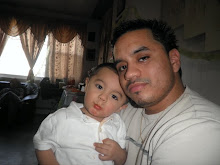
Bill Bryson’s chapter on “Where Words Come From,” was powerful in its ability to portray English’s gift and curse: an array of vocabulary. Bryson talks about how some words like aposiopesis, a word for describing a sudden breaking off of thought (something I experience often), are specific in “describing the most specific of conditions, the most improbable of contingencies, the most arcane of distinctions” (68). In contrast, he also discusses some extreme gaps between other words like hard and soft or near and far. He eventually speaks about the theoretical processes between how these words come into the language.
I found the part about these gaps between words to be profoundly interesting. In writing about this phenomenon, Bryson exposes a link between language and society. Why is there a word to describe a person who has an urge to look through the windows of the homes he or she passes, but no words to describe the feelings between love and hate? Why is there a word in English to distinguish between brain and mind, but no such words to separate the two in Japanese? In English today, we have words like family and friends to separate our relationships with others, but in ancient Greece, they solely used the word philia. Language seems to change with societal concepts.
In another class I am currently taking, “The History of Medicine,” we were discussing some scientific research in biology. As we were reading an article by Anne Fausto-Sterling, the article mentioned how the language in the biological field promotes a certain direction in scientific inquiry. Thinking in this way, can our language condemn us in a sense? Take the word philia from ancient Greece for example, in the time of ancient Greece when philia described the relationships between people (whether it be between friends, family or even lovers), would it be possible for a person to separate the types of relationships? Even today, in terms of race, doesn’t this word promote a class system that becomes engrained in the society?
This chapter has put me to question our responsibility when creating words. If narrow-minded ideas create narrow-minded words, what impact will this have in our world?
I found the part about these gaps between words to be profoundly interesting. In writing about this phenomenon, Bryson exposes a link between language and society. Why is there a word to describe a person who has an urge to look through the windows of the homes he or she passes, but no words to describe the feelings between love and hate? Why is there a word in English to distinguish between brain and mind, but no such words to separate the two in Japanese? In English today, we have words like family and friends to separate our relationships with others, but in ancient Greece, they solely used the word philia. Language seems to change with societal concepts.
In another class I am currently taking, “The History of Medicine,” we were discussing some scientific research in biology. As we were reading an article by Anne Fausto-Sterling, the article mentioned how the language in the biological field promotes a certain direction in scientific inquiry. Thinking in this way, can our language condemn us in a sense? Take the word philia from ancient Greece for example, in the time of ancient Greece when philia described the relationships between people (whether it be between friends, family or even lovers), would it be possible for a person to separate the types of relationships? Even today, in terms of race, doesn’t this word promote a class system that becomes engrained in the society?
This chapter has put me to question our responsibility when creating words. If narrow-minded ideas create narrow-minded words, what impact will this have in our world?

No comments:
Post a Comment